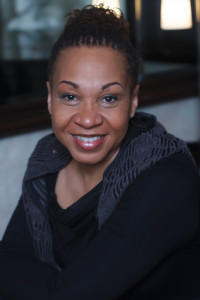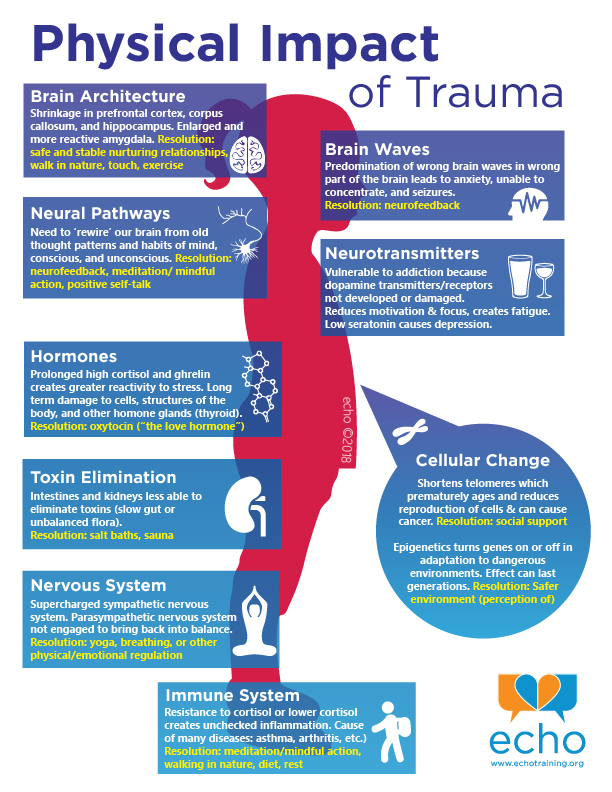
Echo has recently expanded its focus to look at Adverse Community Experiences. What is that, you may ask. The Adverse
 Childhood Experiences Study is now almost two decades old, and it has revolutionized the way we look at physical, mental and social problems. The take-away message is that adversity has long-lasting and sometimes devastating effects on later life, but as the science shows, a safe, stable nurturing relationship with a caring adult can help children heal and build resilience.
Childhood Experiences Study is now almost two decades old, and it has revolutionized the way we look at physical, mental and social problems. The take-away message is that adversity has long-lasting and sometimes devastating effects on later life, but as the science shows, a safe, stable nurturing relationship with a caring adult can help children heal and build resilience.
However, no individual, and no family, exists in a vacuum. What about the toxic stresses that weigh heavily on certain communities? How does poverty, racism, forced displacement, homelessness or community violence, for example, affect the health and wellbeing of communities and the individuals who live in them?
This is the question that we will be attempting to answer in our 2017 “Changing the Paradigm” conference. Dr. Joy Degruy, author of “Post Traumatic Slave Syndrome”, has agreed to be our keynote speaker. Stay tuned for more!
In the meantime, how are we incorporating this work into what we do at Echo?
Well, unsurprisingly, community trauma and community resilience have a lot to do with strong, connected relationships – the lack or the presence thereof. Often our individual or collective trauma gets in the way of creating those relationships – we have a history that inclines us to fear and mistrust. That fear and our attempts to cope with a scary situation may have at one time actually protected us, but now maybe they no longer serve us.
As psychologist, Darejan Javakhishvili, says in her work on displaced communities, without being able to get to the real persecutor (because they are dead, too powerful, or are in the country you fled), the ‘enemy’ is an empty frame of aggression, which freely floats around and tries to fit the first available object. The easier target is ‘the other’ – a different person or group – which results in intolerance towards different opinion, attitudes and mentality.
It takes consciousness and intent not to fall into the trap of creating enemy images. Trauma tends to polarize the mind, to group people as ‘good’ or ‘bad’, to live as if you are fighting your childhood oppressor in every person who holds a different opinion or thinks differently to you. We none of us are immune, including the proponents of trauma-informed nonviolent parenting! Diana Ayala, Co-Executive Director at Echo, has long argued that we need to try to understand the ‘dominant’ paradigm of parenting and have empathy for those who have such a hard time giving up punishment and rewards as a means of controlling behavior.
The Echo Team.



